The Morning Calm – Exhibition by contemporary Korean artists Insang Song & Korea Painting Association at The Indo – Korean Cultural and Information – InKo Centre, Chennai
– exhibition featuring 7 contemporary artists from korea
| CasualWalker’s Rating for The Morning Calm – Exhibition at InKo Centre, Chennai: | |

9.8 – Great / Excellent |
|
The Morning Calm, is an art exhibition by contemporary Korean artists by Insang Song & Korea Painting Association at The Indo – Korean Cultural and Information – InKo Centre, Chennai. The Morning Calm an exhibition featuring 7 contemporary artists from Korea, focuses on the nature-friendly ideology as well as the quiet contemplative gaze integral to Korean traditional painting. Aligned with the calm before the morning breaks, the exhibition showcases myriad perspectives of this phenomenon through distinct visual language.
Message from the Artist & Curator – Insang Song
As the sun rises, morning unfolds its glory. Morning has many meanings. It can be a sign of a strong start to the day and it could also symbolize the moment of meeting a new world after a difficult period. Korean painting, based on Korea’s nature-friendly traditional ideology, contains a contemplative gaze on nature and a quiet, still moment just before conceiving something. It resembles the unfolding of the morning. All seven Korean painters will display the phenomenon of the ‘morning’, through a distinctive visual language.
About the Curator – Insang Song
Insang Song is an independent curator based in Seoul and New Delhi. He worked in the Art Museum of Seoul Art Center for more than 22 years, during which period, he planned more than thirty exhibitions and events including Hybrid Trend (30 artists from India and Korea, Seoul Arts Center, Seoul, 2006), The Lamp of the East (presented by InKo Centre at Lalit Kala Akademi, Chennai, 2010), Pink City Art Project (Jkk, Jaipur, India, 2011), While working as Art Director at the Korean Cultural Centre India (2012-2016), he curated Moving Korea (Korean Cultural Centre India, 2012), AMMA UMMA (India International Centre, Delhi, 2013). 1 L0tus 8 _Korean Zen Buddhism and Bodhidharma, (National Museum New Delhi, 2015). Chilika Art Sanctuary (tribal and folk painting from 7 countries, Odi Art Centre, Odisha, 2020-2021). He is currently is curating independent art projects and researching Indian tribal and traditional art.
About the Korea Painting Association
The Korea Painting Association was instituted for the purpose of promoting the excellence of Korean painting that reflects the aesthetic consciousness of the Korean people and to contribute to the development of Korean painting. This organization annually presents the ‘Korean Painting Day’ event and regularly holds exhibitions and academic events related to Korean painting.
How to reach InKo Center, Chennai:
InKo Centre Address: inKo Centre, 18, Adyar Club Gate Road, Chennai – 600 028.
Telephone: 044 2436 1224
Open Timings: Monday to Saturday – 10.00 a.m. to 6.00 p.m.
Website: http://www.inkocentre.org
Check out our photo captures of The Morning Calm – Exhibition by contemporary Korean artists by Insang Song & Korea Painting Association at InKo Centre, Chennai.
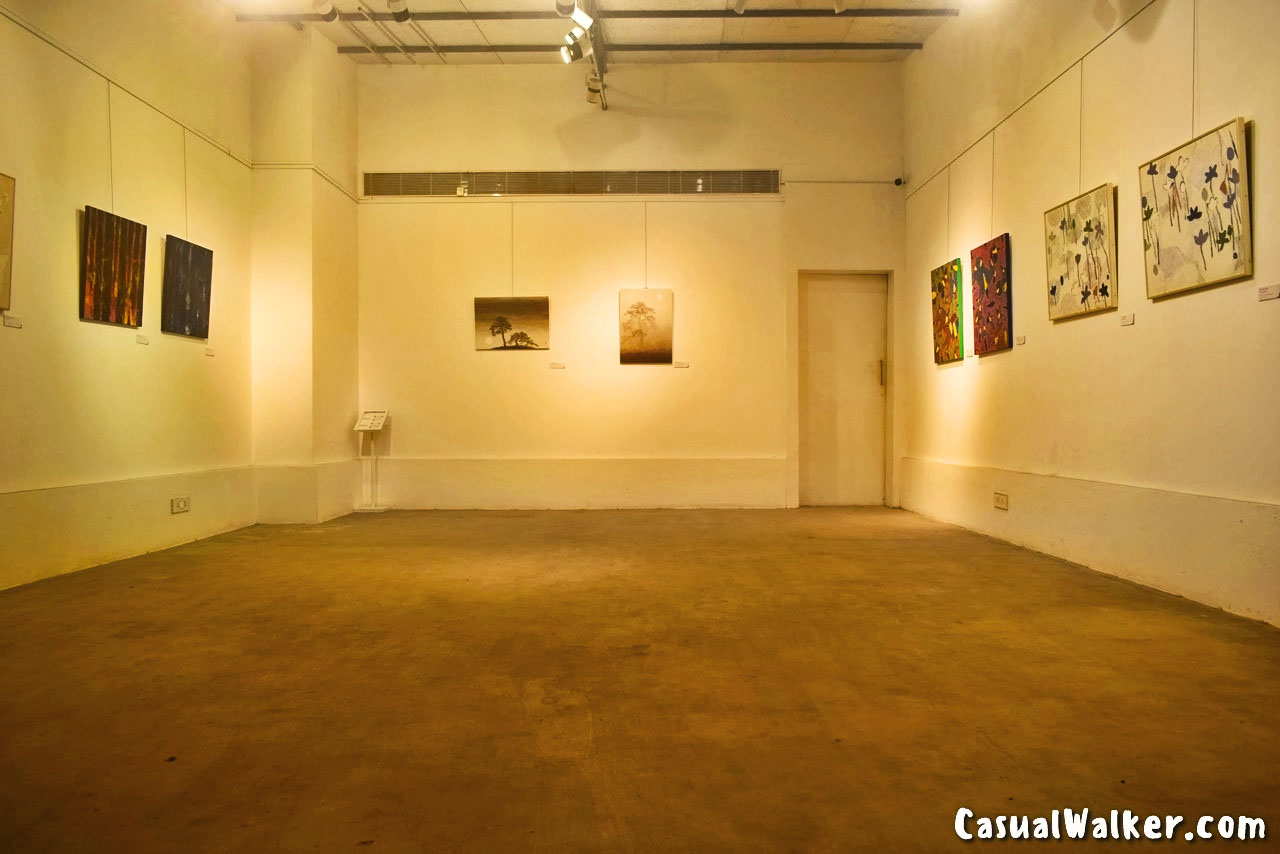
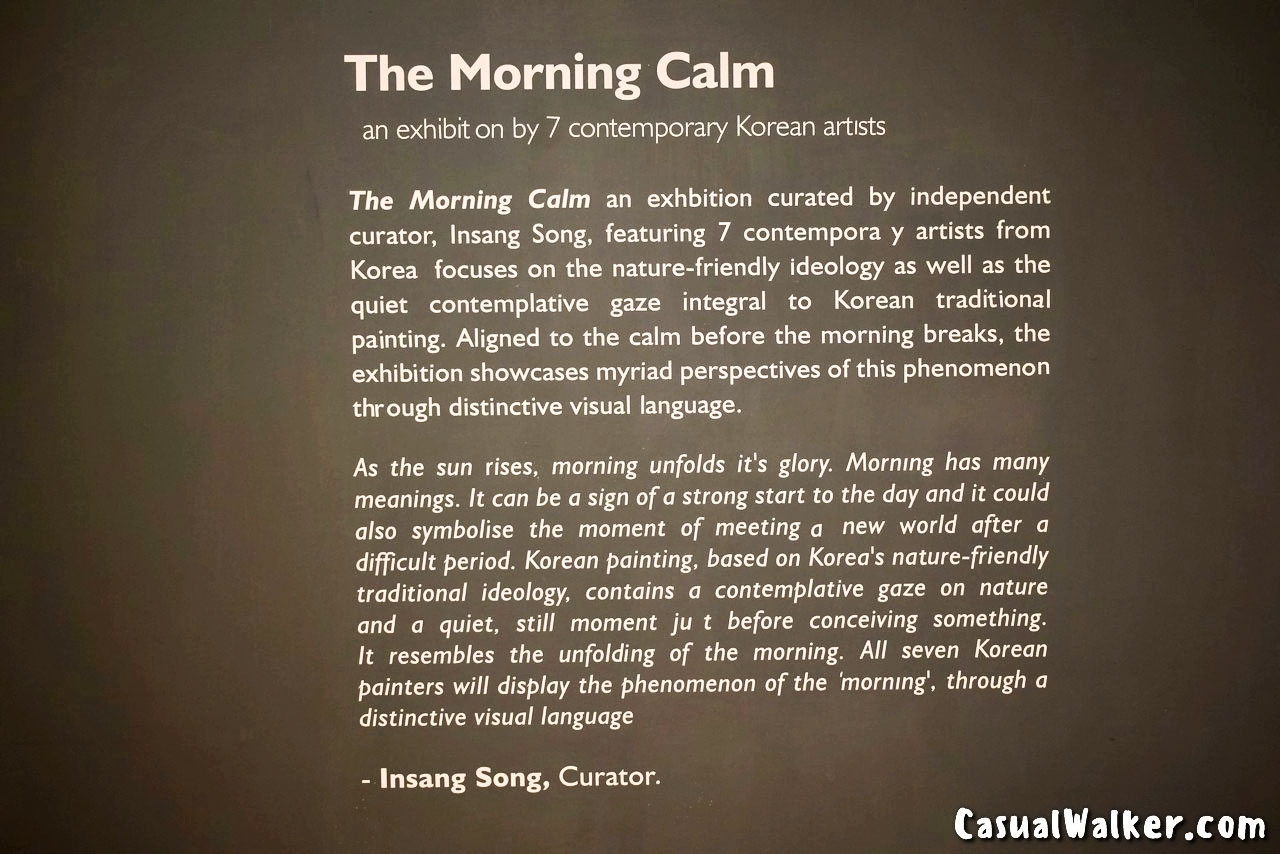
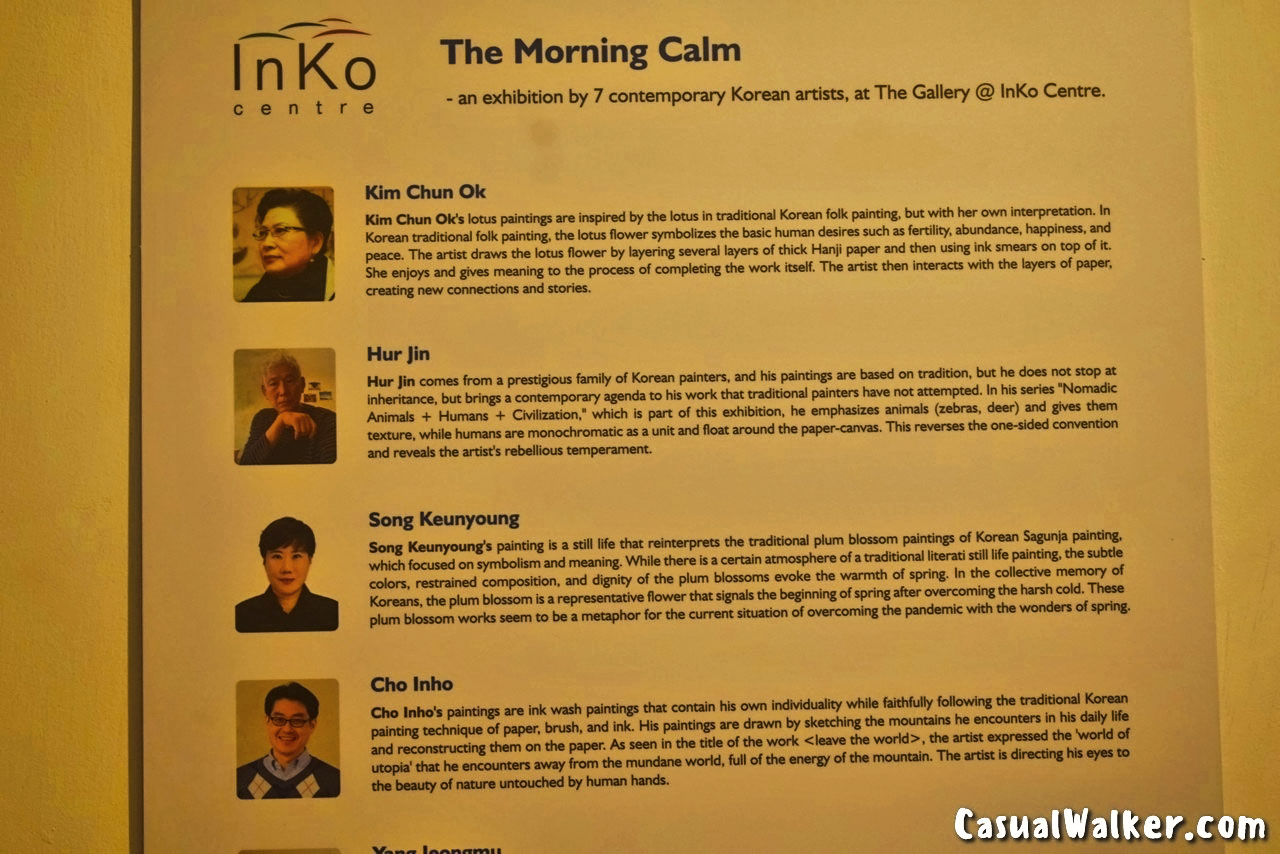
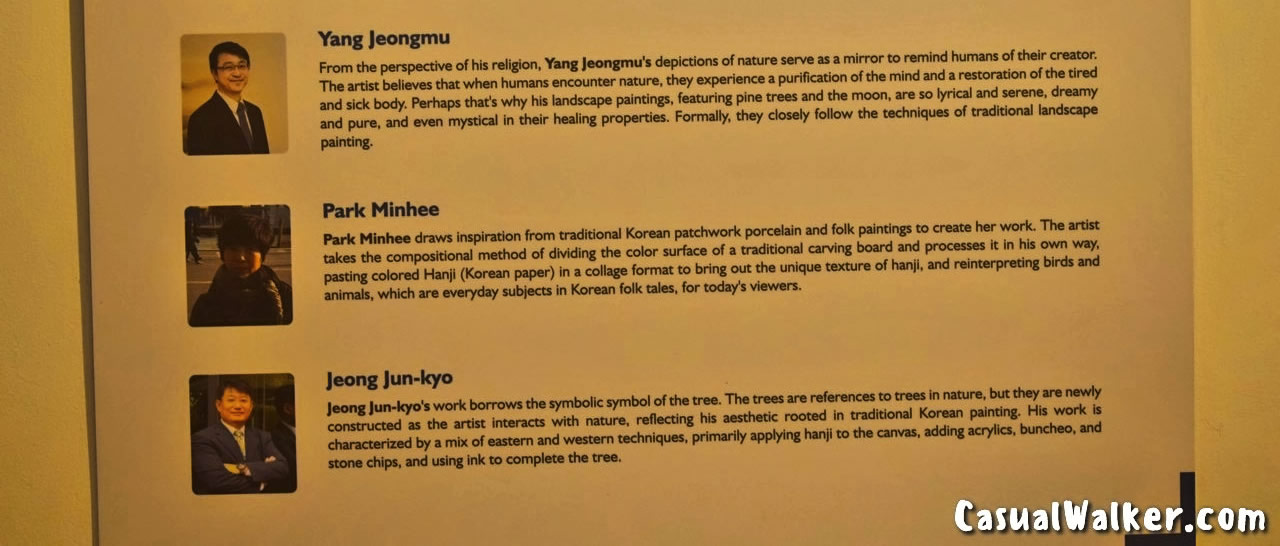
Kim Chun Ok – Nature – Relationship
Kim Chun Ok’s lotus paintings are inspired by the lotus in traditional Korean folk painting but with her own interpretation. In Korean traditional folk painting, the lotus flower symbolizes basic human desires such as fertility, abundance, happiness, and peace.
The artist draws the lotus flower by layering several layers of thick Hanji paper and then using ink smears on top of it. She enjoys and gives meaning to the process of completing the work itself. The artist then interacts with the layers of paper, creating new connections and stories.
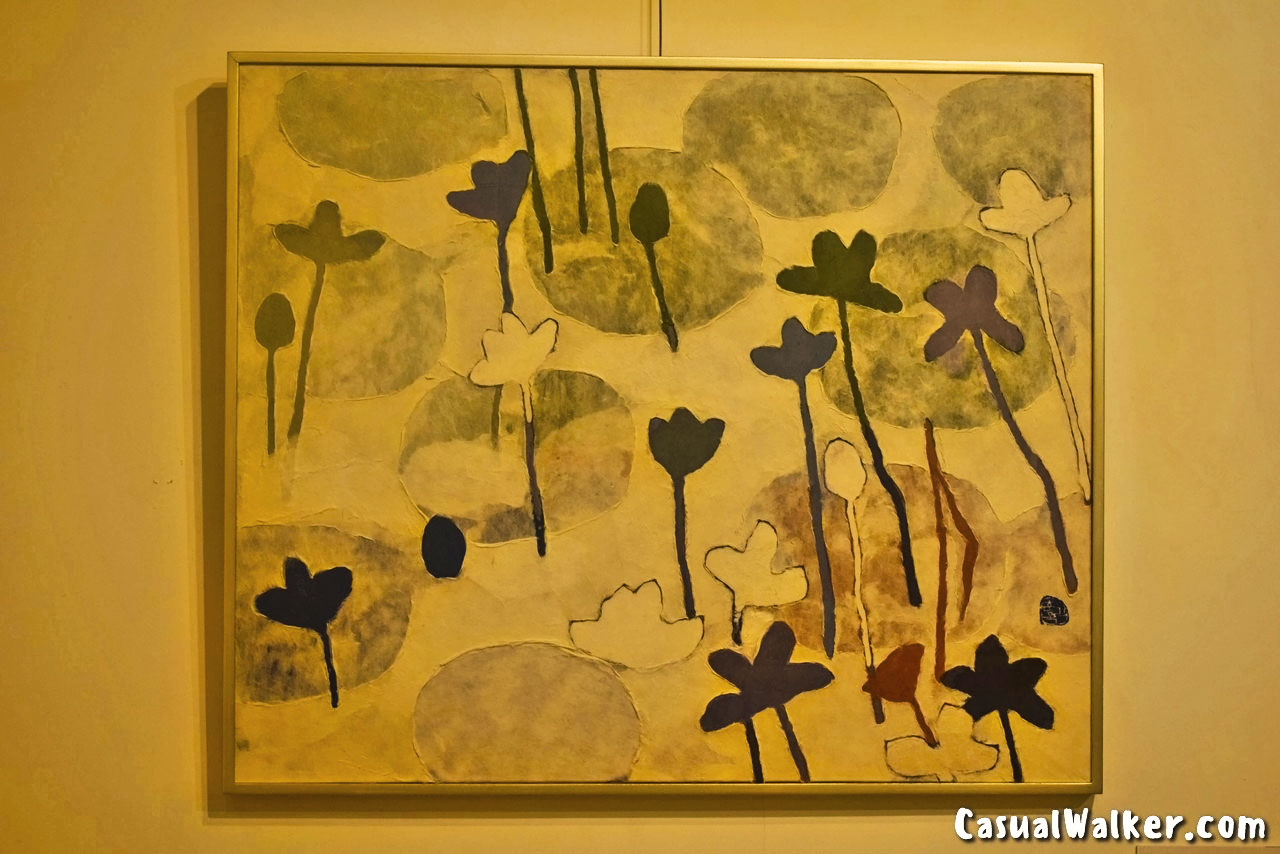
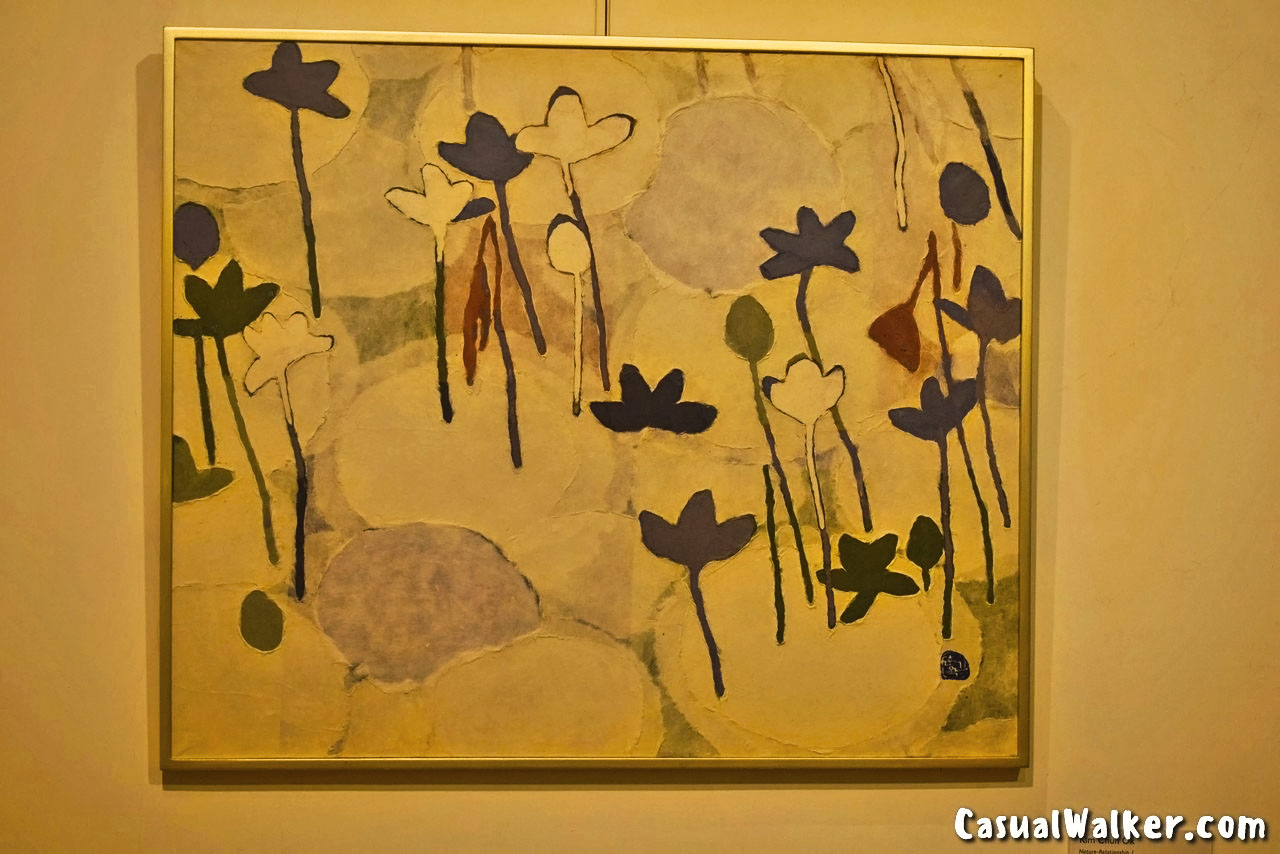
Hur Jin – Nomadic Animals + Human-Civilization
Hur Jin comes from a prestigious family of Korean painters, and his paintings are based on tradition, but he does not stop at inheritance, but brings a contemporary agenda to his work that traditional painters have not attempted.
In his series “Nomadic Animals+Humans + Civilization,” which is part of this exhibition, he emphasizes animals (zebras, deer) and gives them texture, while humans are monochromatic as a unit and float around the paper-canvas. This reverses the one-sided convention and reveals the artist’s rebellious temperament.
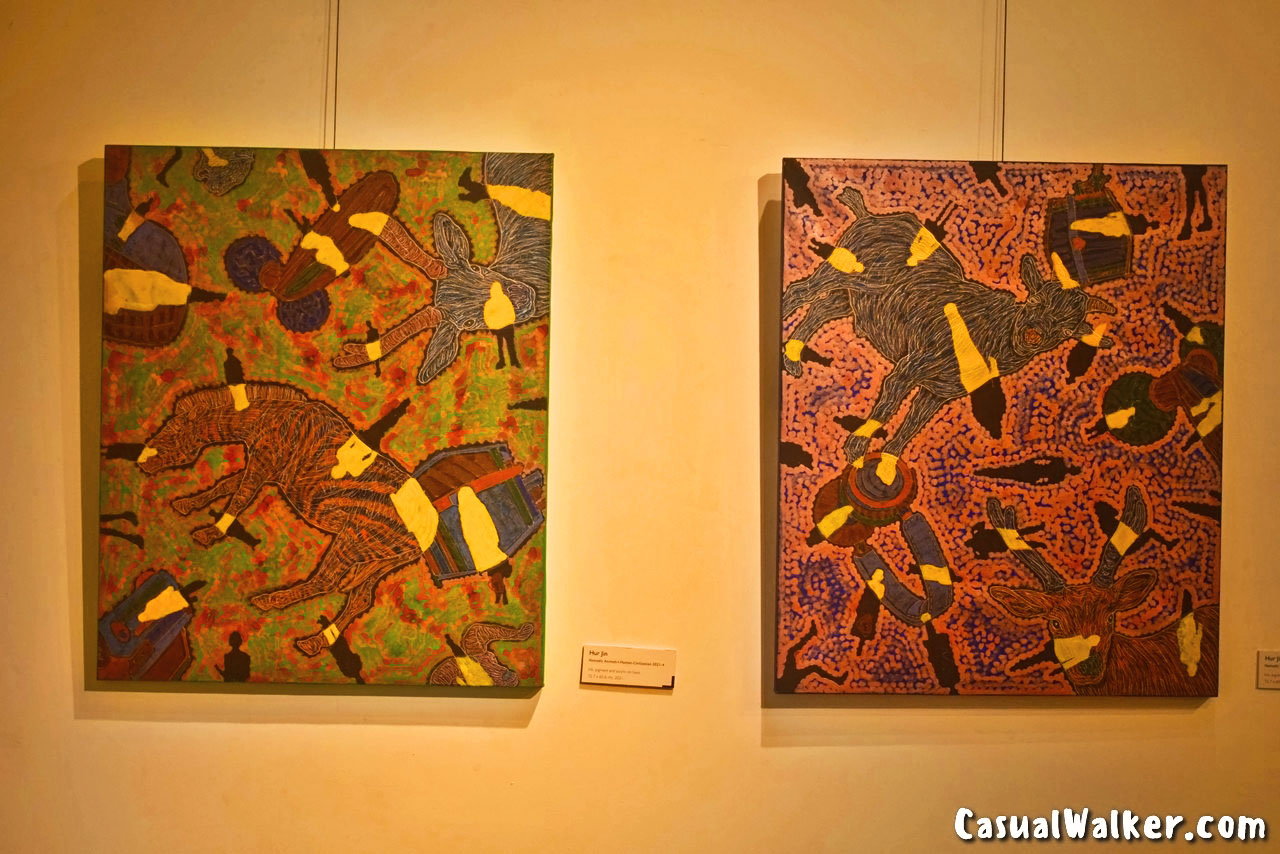
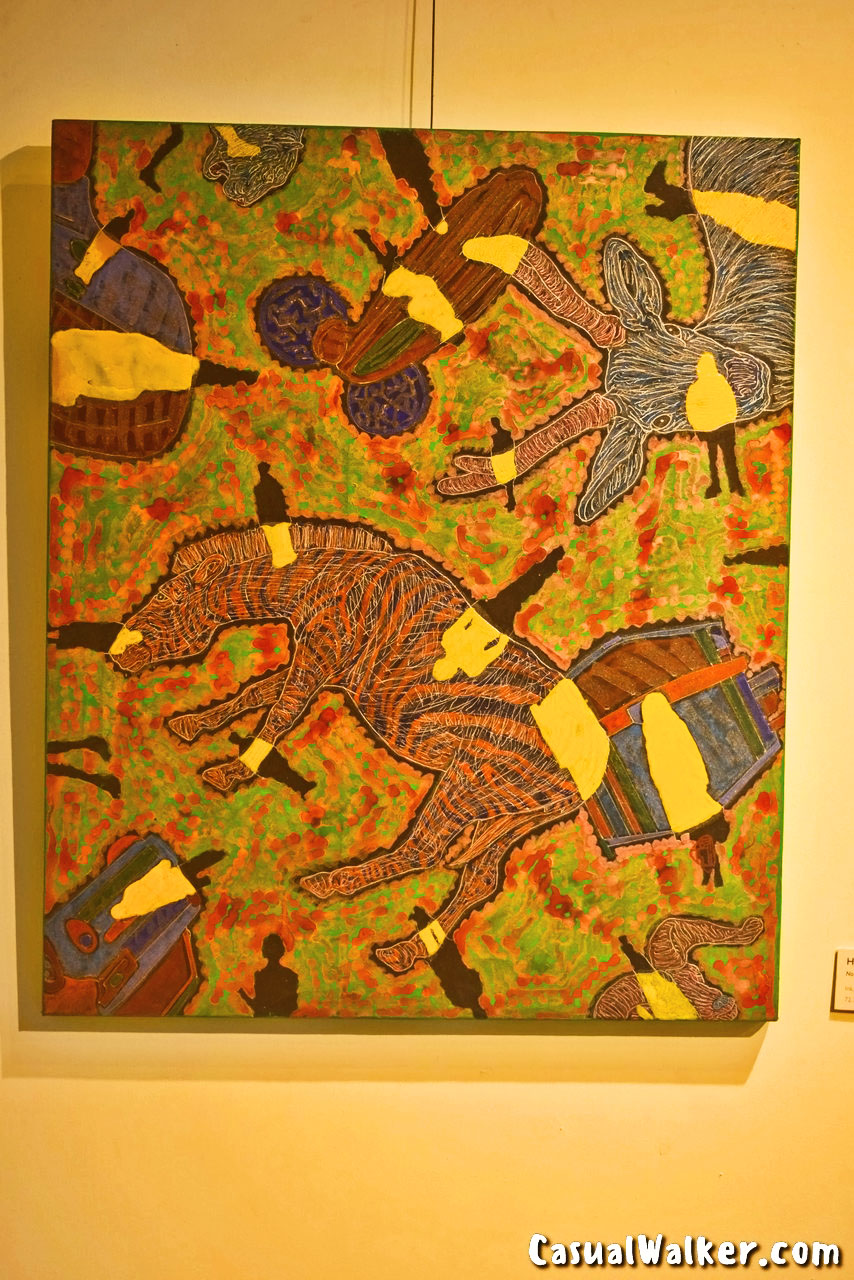
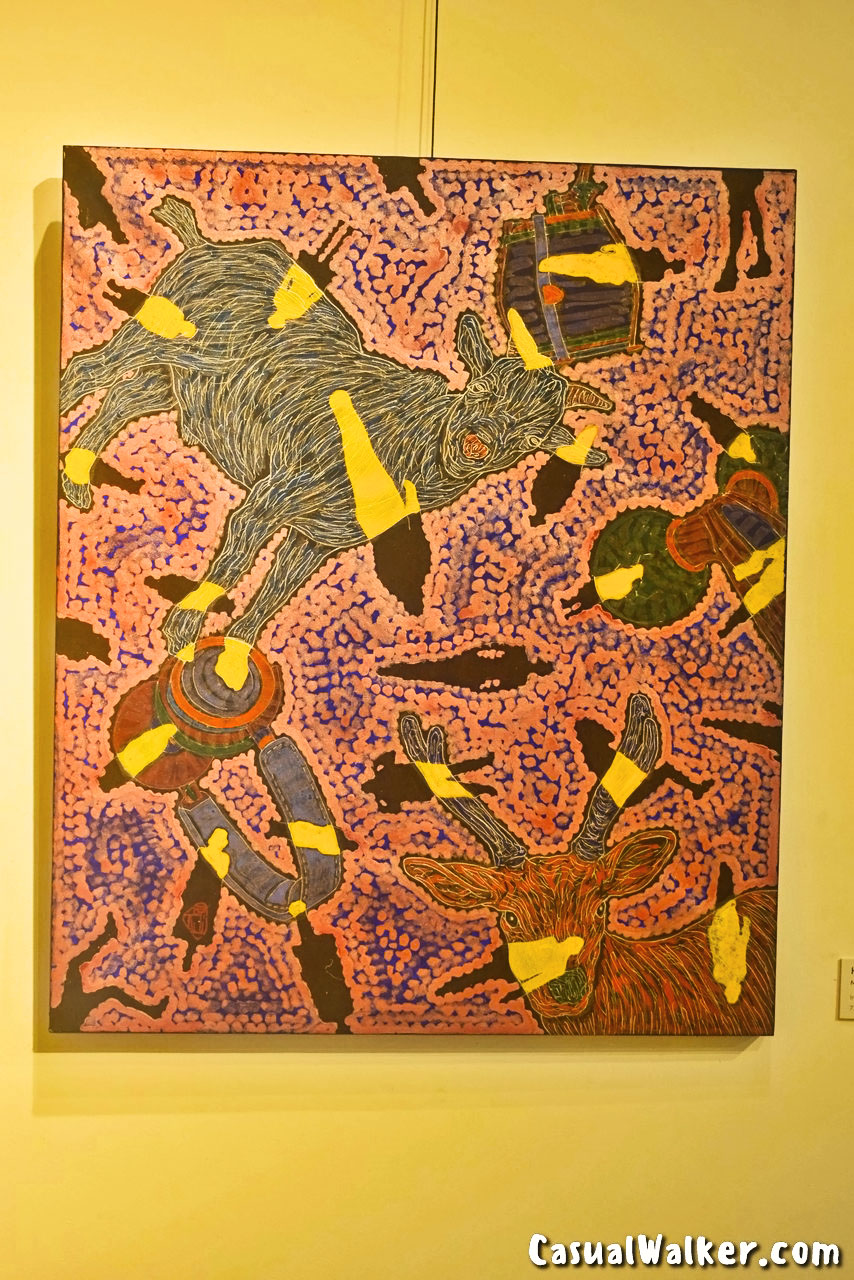
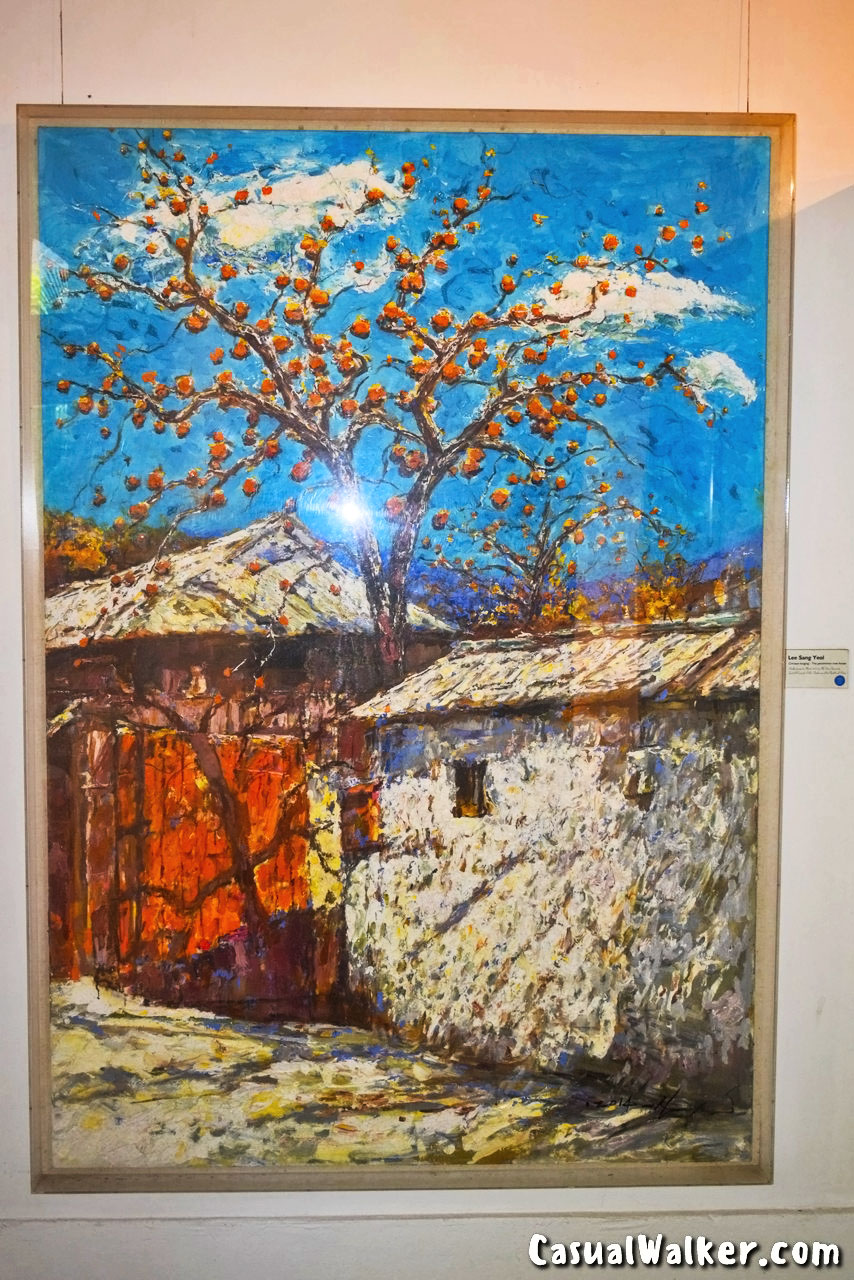
Yang Jeongmu – Interactions between Emotion and Scenery A Full Moon The Place of Help
From the perspective of his religion, Yang Jeongmu’s depictions of nature serve as a mirror to remind humans of their creator. The artist believes that when humans encounter nature, they experience a purification of the mind and a restoration of the tired and sick body.
Perhaps that’s why his landscape paintings, featuring pine trees and the moon, are so lyrical and serene, dreamy and pure, and even mystical in their healing properties. Formally, they closely follow the techniques of traditional landscape painting.
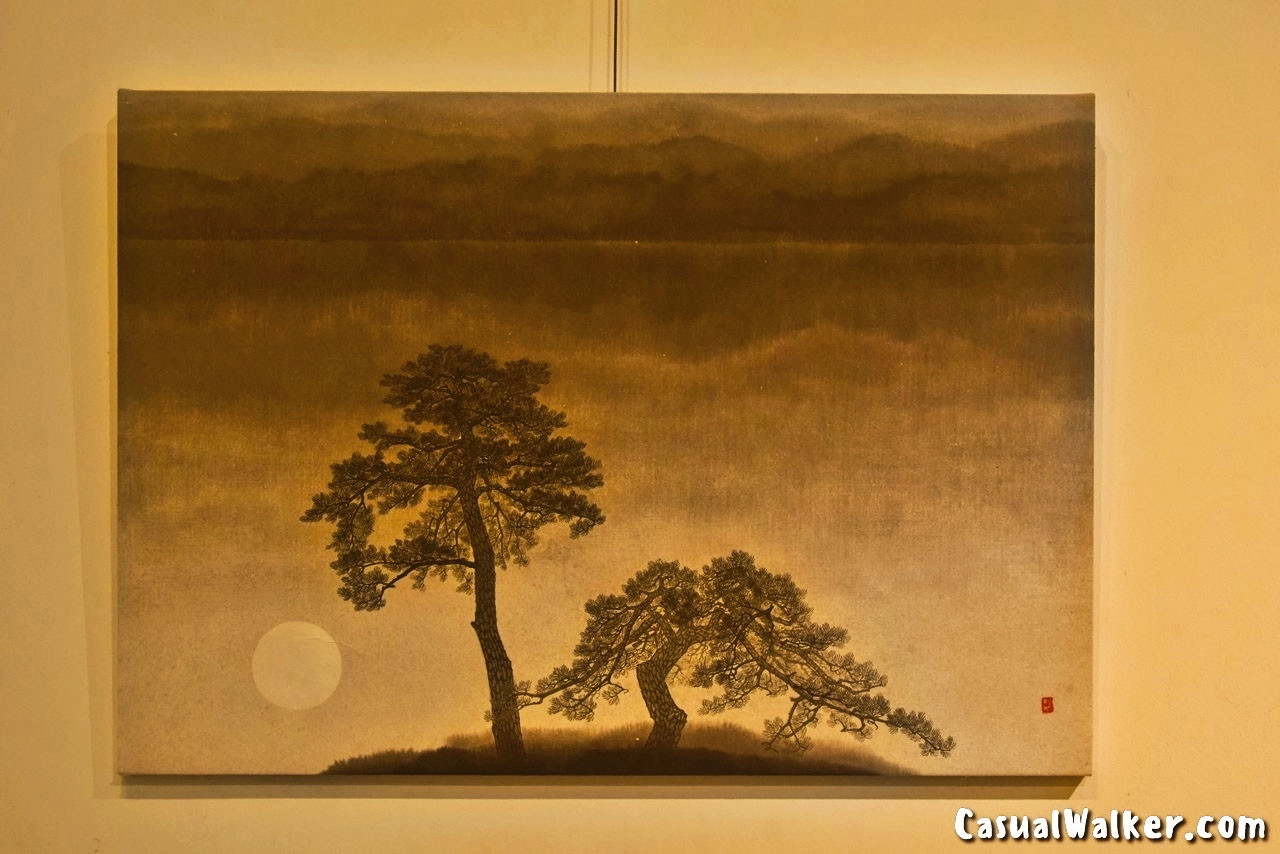
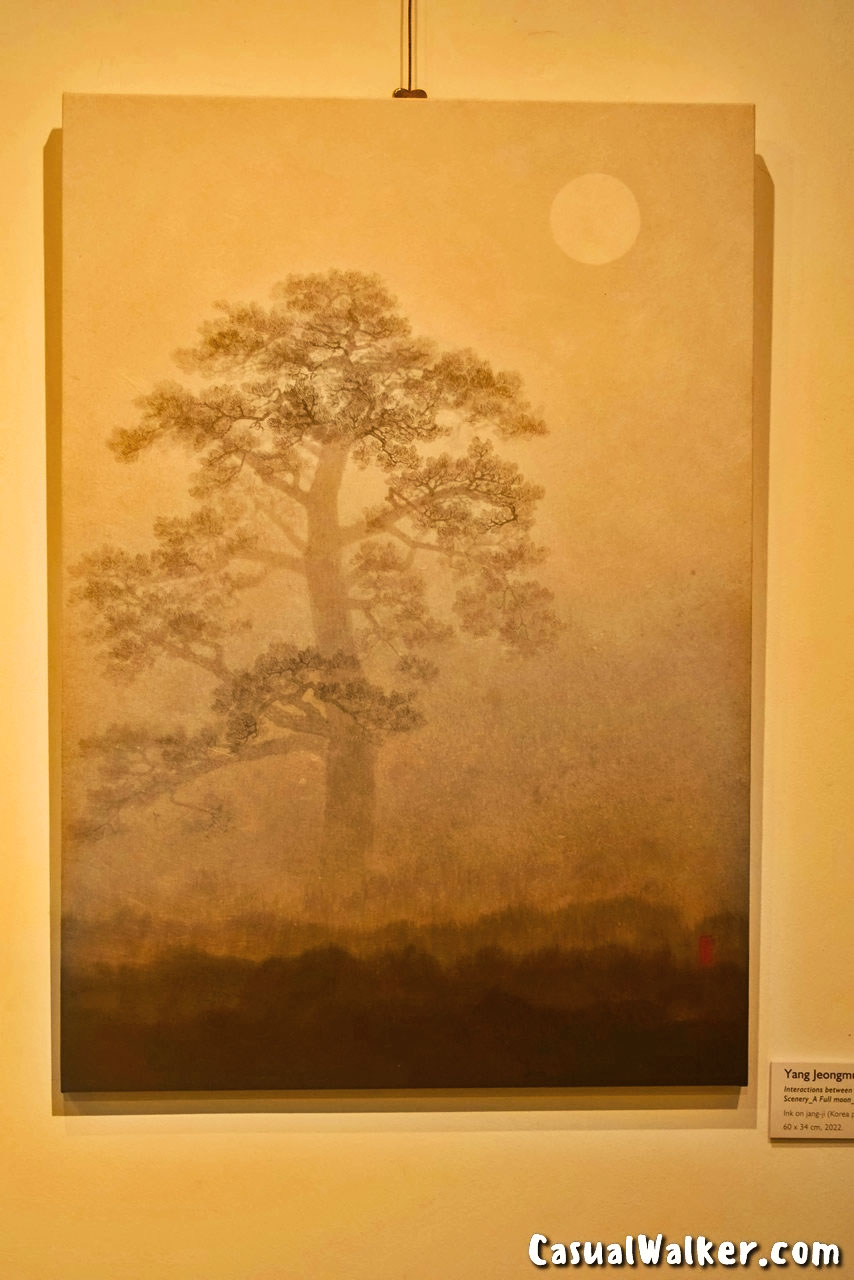
Park Minhee – Secret Garden
Park Minhee draws inspiration from traditional Korean patchwork porcelain and folk paintings to create her work. The artist takes the compositional method of dividing the color surface of a traditional carving board and processes it in his own way.
pasting colored Hanji (Korean paper) in a collage format to bring out the unique texture of hanji, and reinterpreting birds and animals, which are everyday subjects in Korean folk tales, for today’s viewers.
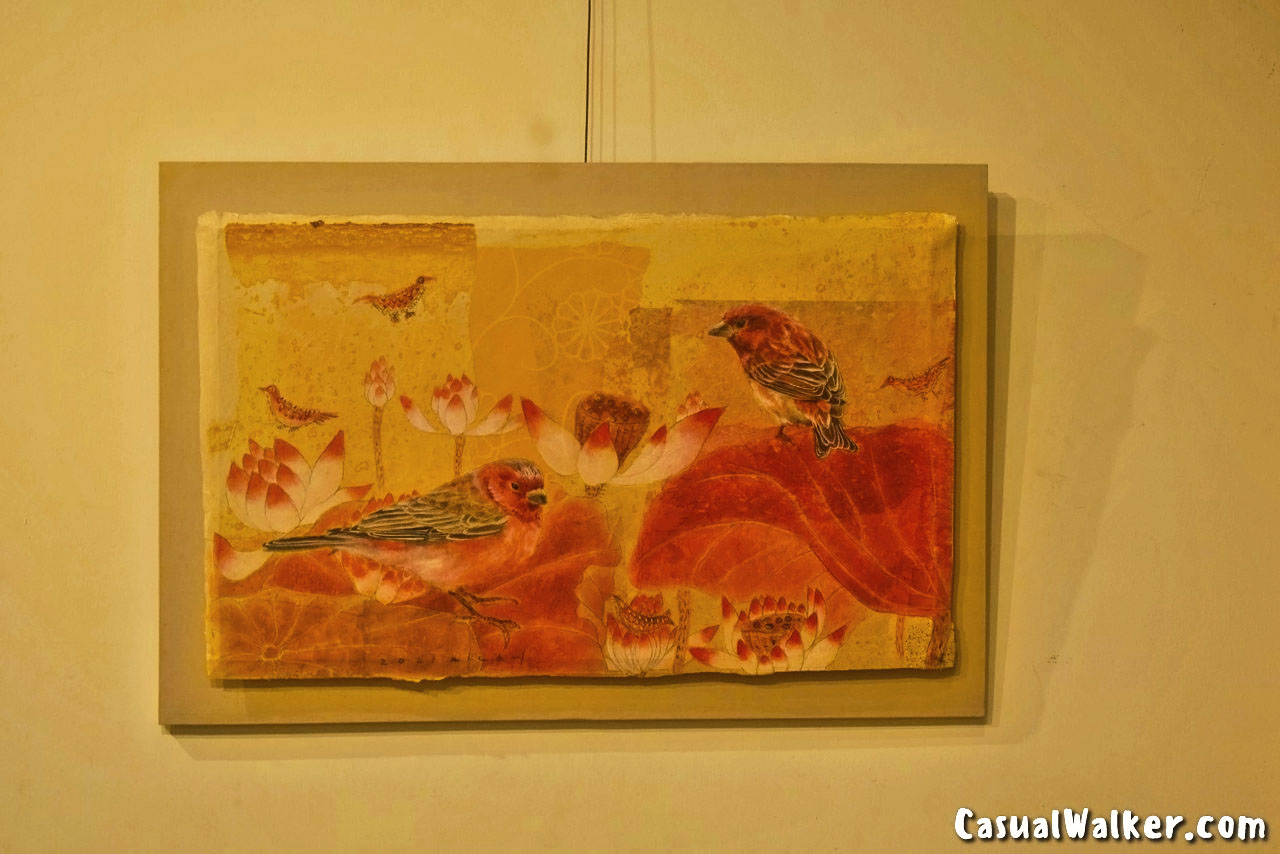
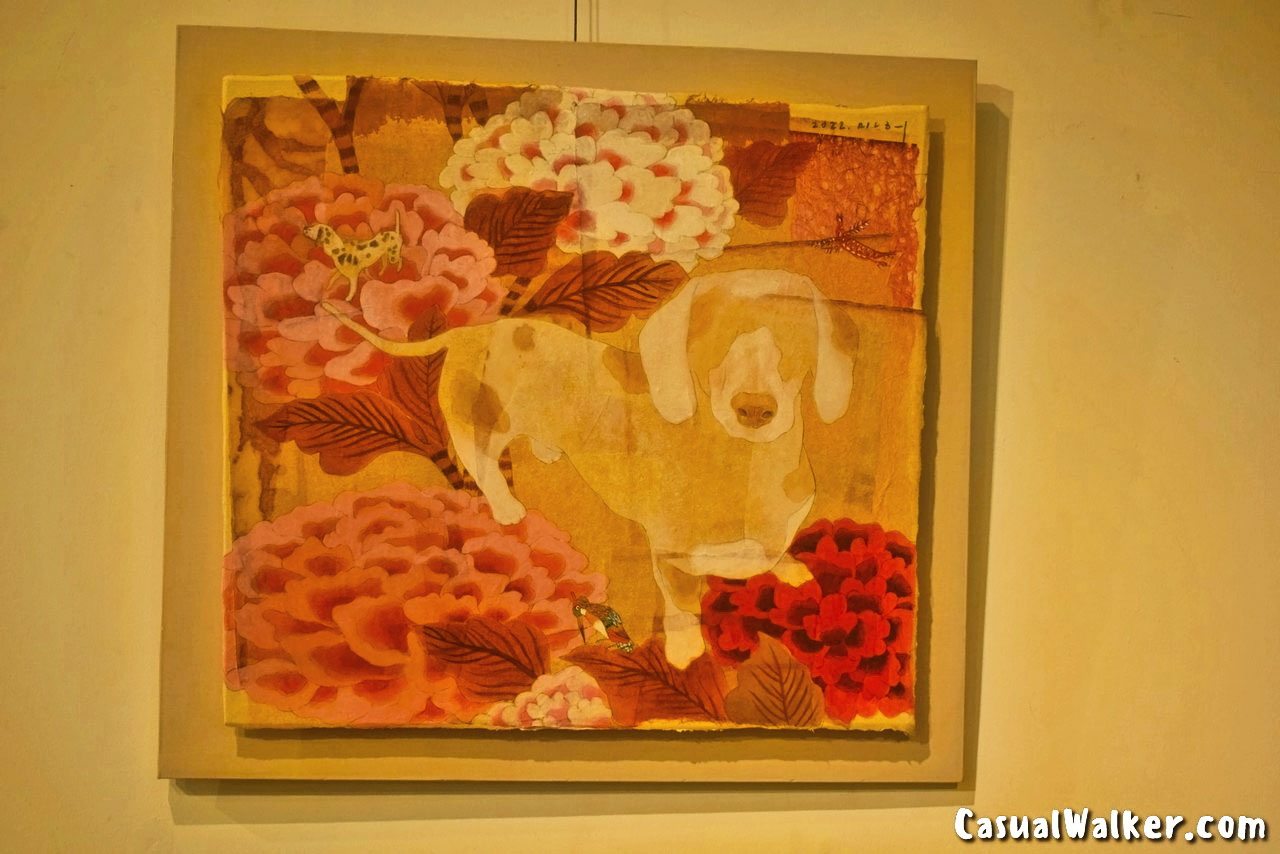
Cho Inho – Leave the World
Cho Inho’s paintings are ink wash paintings that contain his own individuality while faithfully following the traditional Korean painting technique of paper, brush, and ink. His paintings are drawn by sketching the mountains he encounters in his daily life and reconstructing them on the paper.
As seen in the title of the work <leave the world>, the artist expressed the world of utopia’ that he encounters away from the mundane world, full of the energy of the mountain. The artist is directing his eyes to the beauty of nature untouched by human hands.
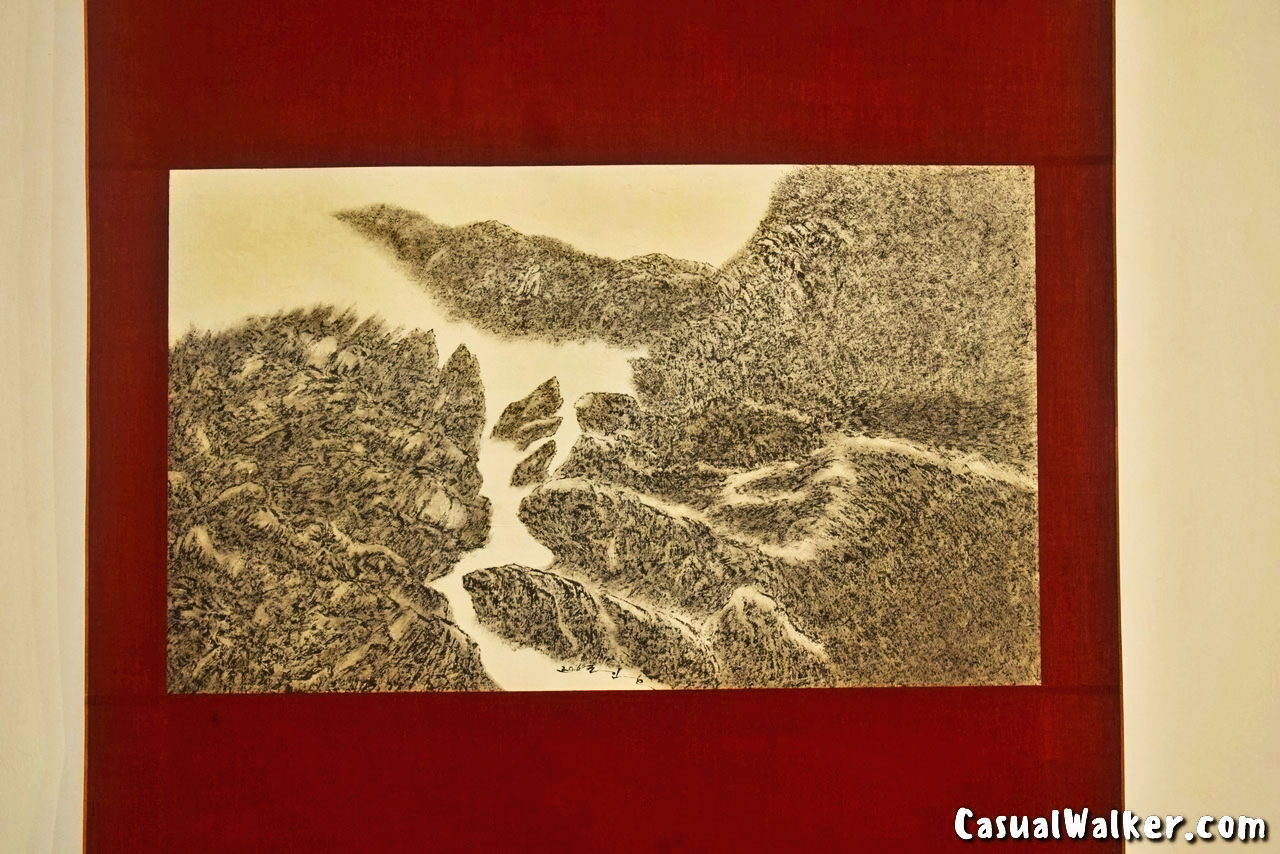
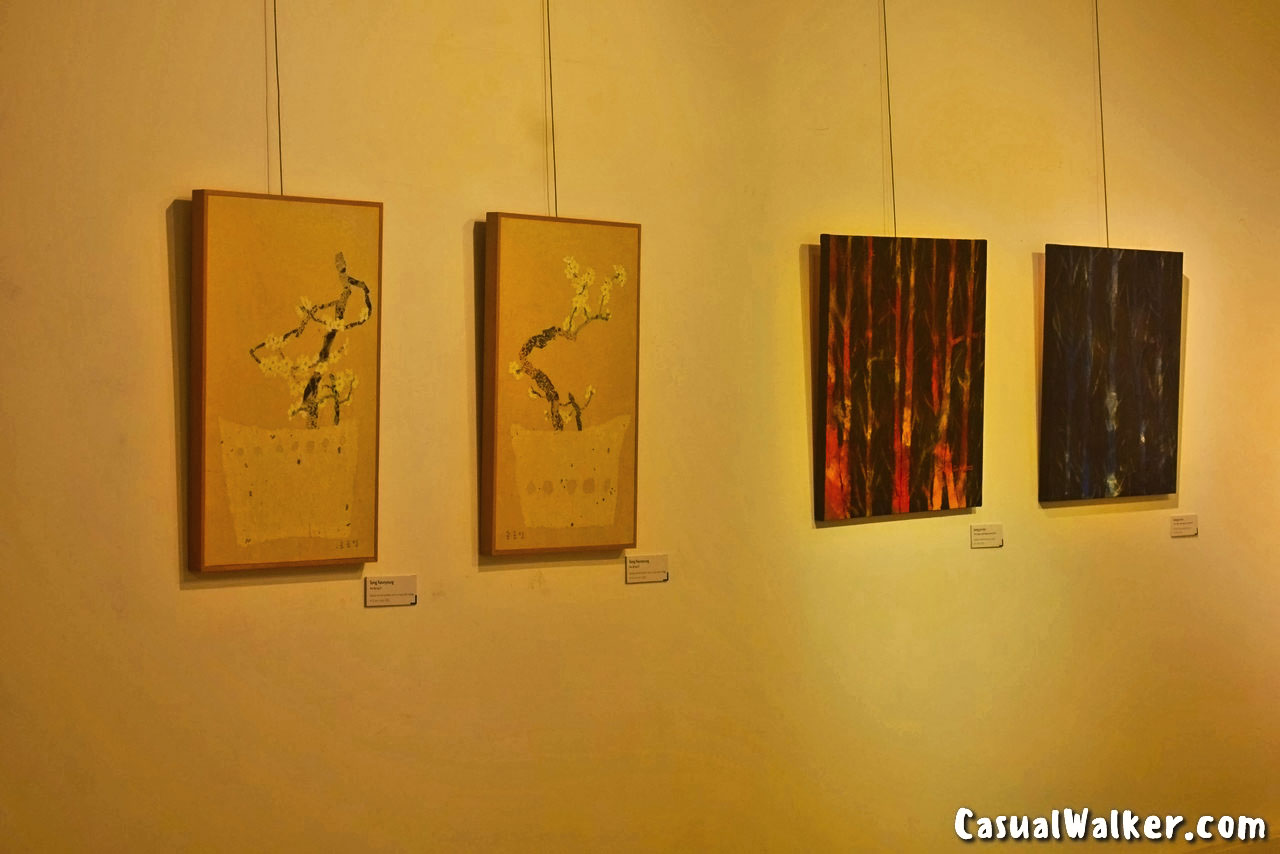
Song Keunyoung – See Spring
Song Keunyoung’s painting is a still life that reinterprets the traditional plum blossom paintings of Korean Sagunja painting, which focused on symbolism and meaning. While there is a certain atmosphere of a traditional literati still life painting, the subtle colors, restrained composition, and dignity of the plum blossoms evoke the warmth of spring.
In the collective memory of Koreans, the plum blossom is a representative flower that signals the beginning of spring after overcoming the harsh cold. These plum blossom works seem to be a metaphor for the current situation of overcoming the pandemic with the wonders of spring.
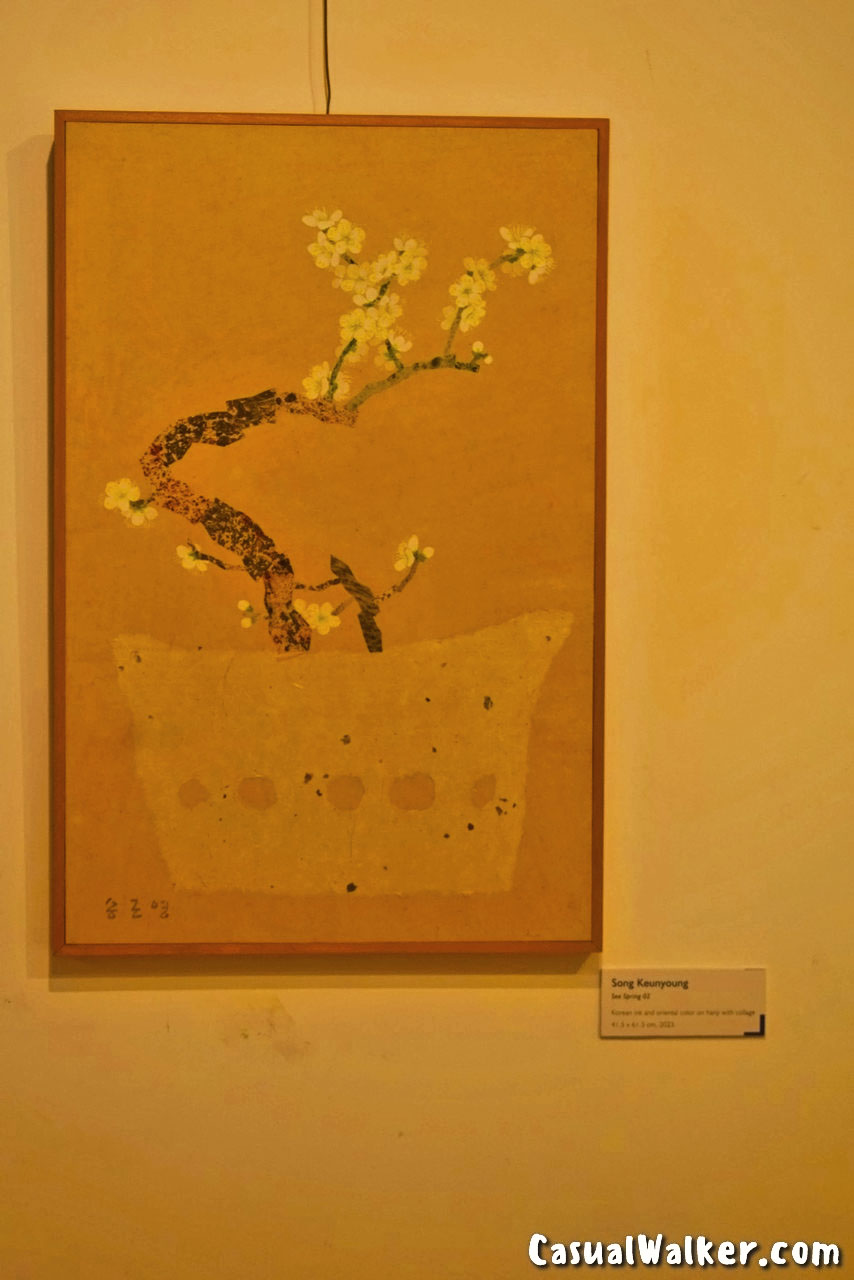
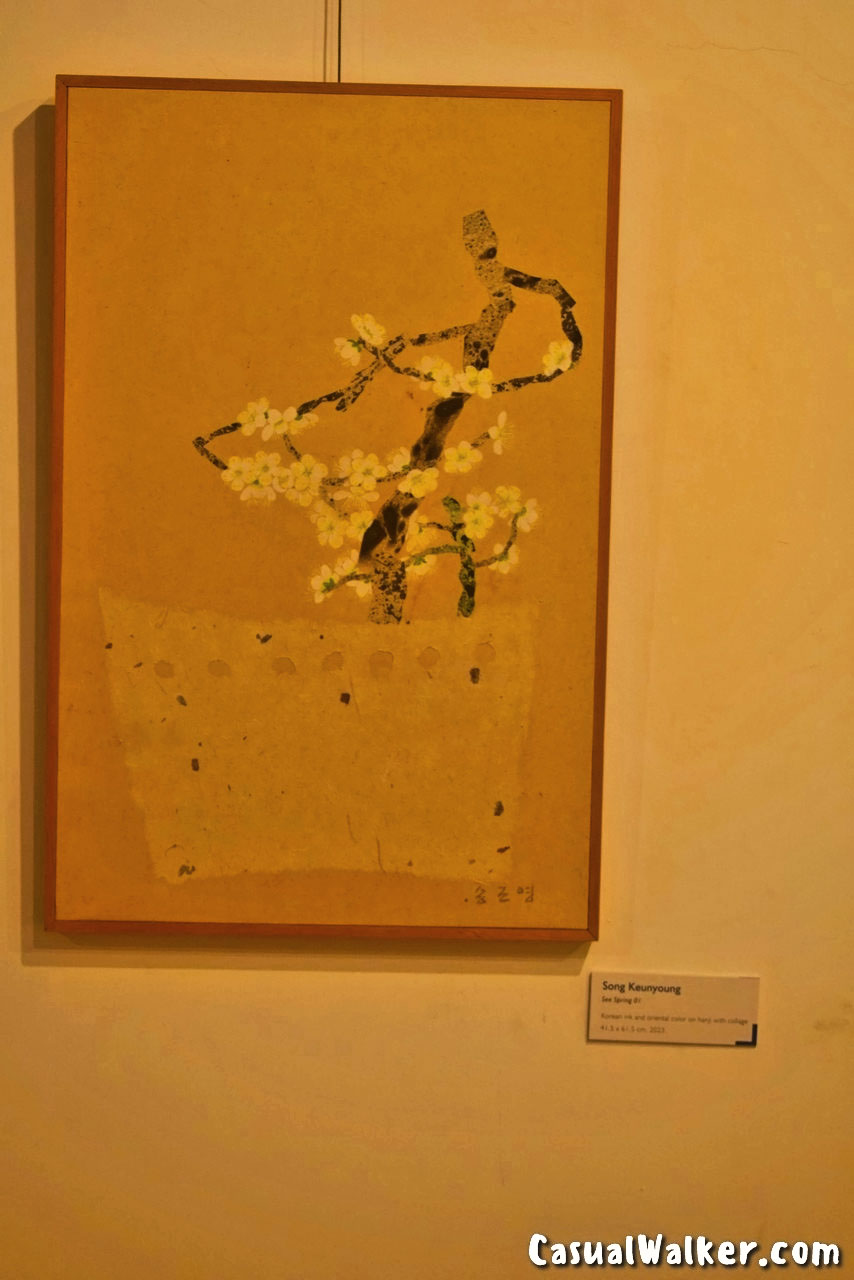
Jeong Jun-kyo – Tree Image in Psychological State
Jeong Jun-kyo’s work borrows the symbolic symbol of the tree. The trees are references to trees in nature, but they are newly constructed as the artist interacts with nature, reflecting his aesthetic rooted in traditional Korean painting.
His work is characterized by a mix of eastern and western techniques, primarily applying hanji to the canvas, adding acrylics, buncheo, and stone chips, and using ink to complete the tree.
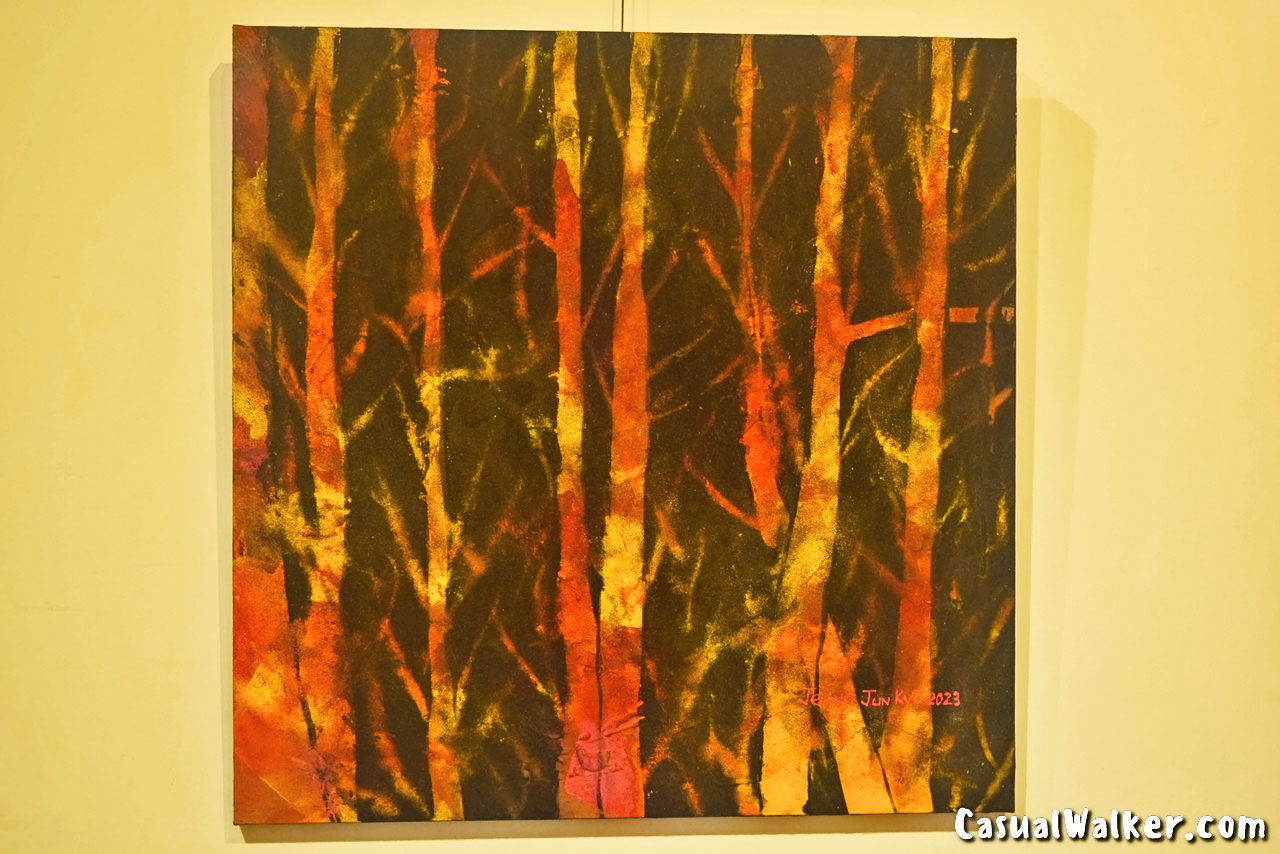
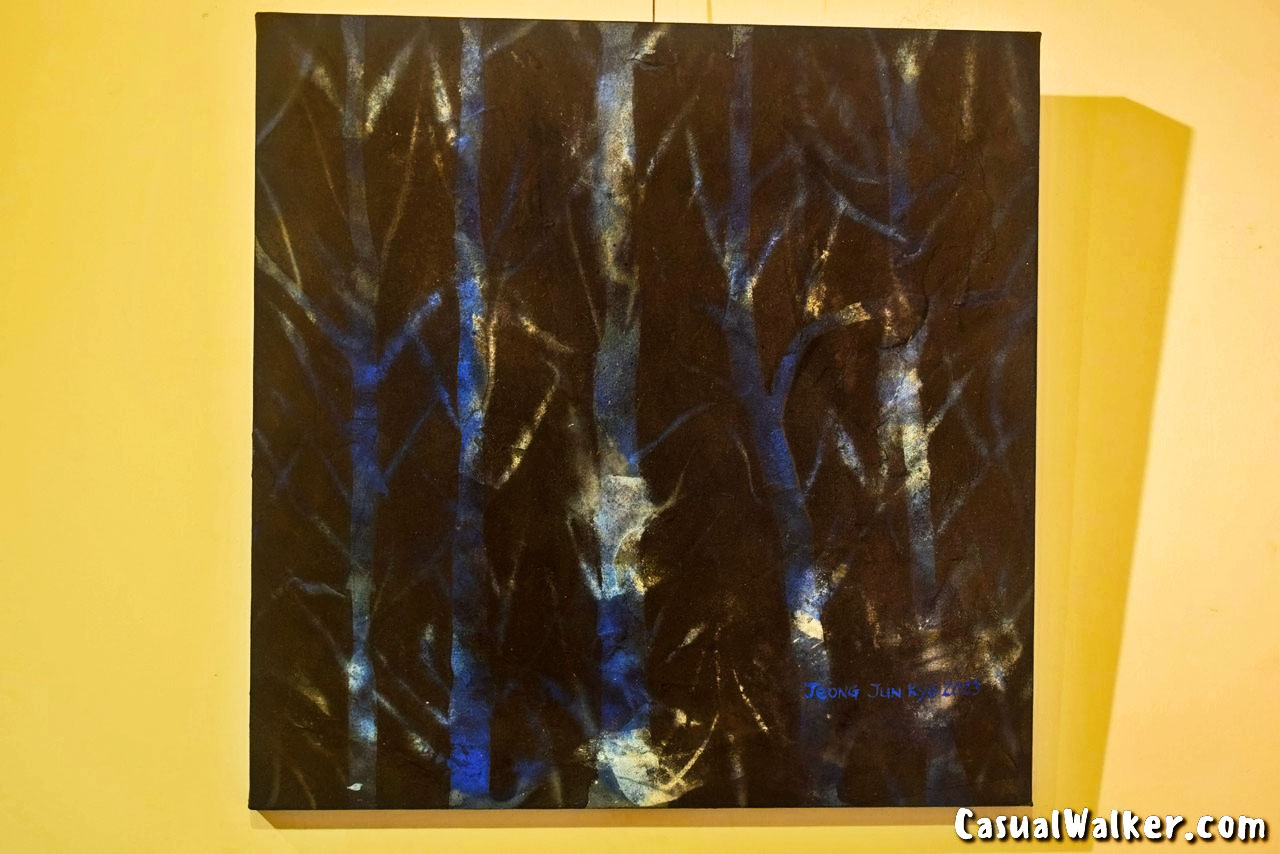
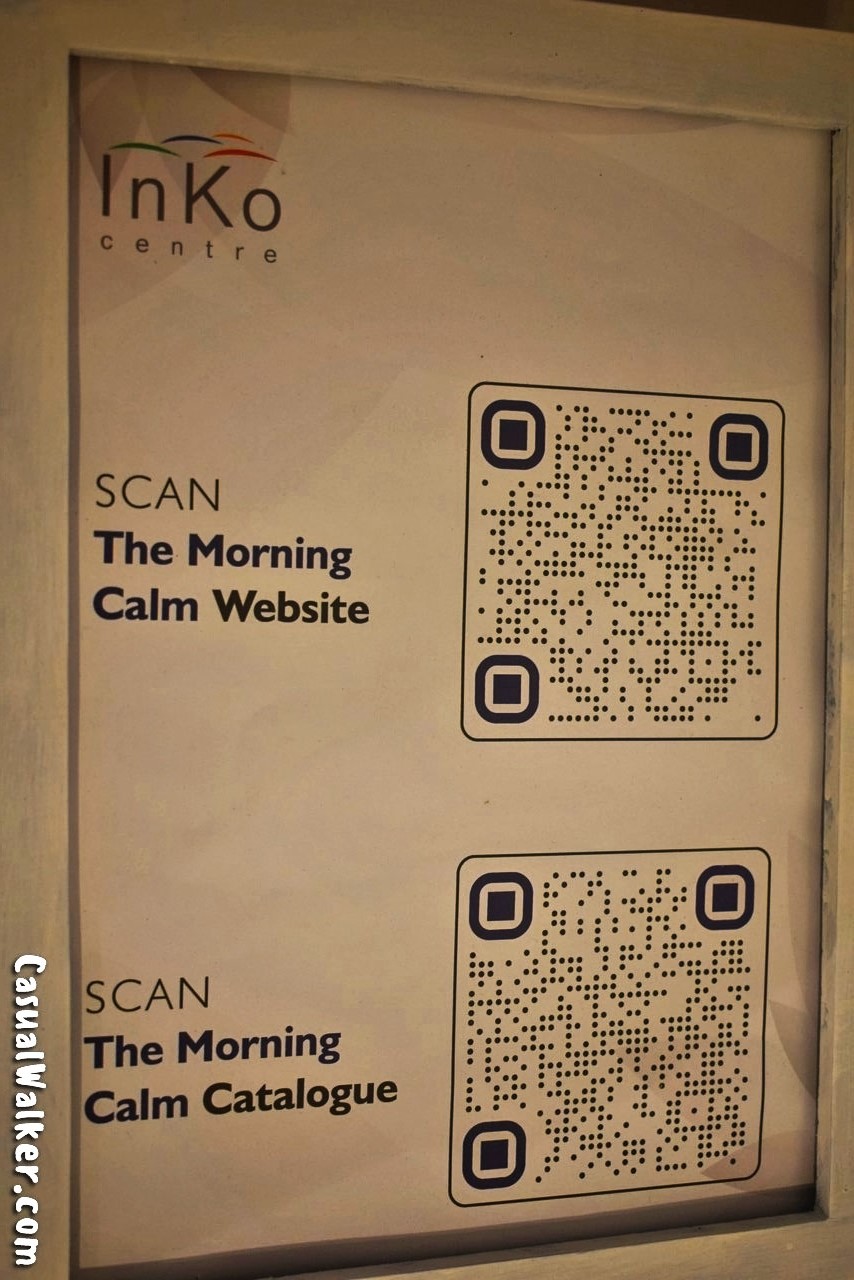
Also, check our Similar Interesting Art related Photo Stories:
Phaneng – A journey into Personal Engagement photography exhibition, Chennai
Unspoken – An exhibition of visual artwork, MFA Students, Chennai
Cholamandal Artists’ Village, Museum Of Contemporary Art, Injambakkam, Chennai

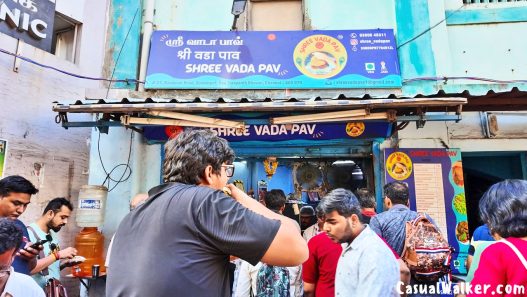

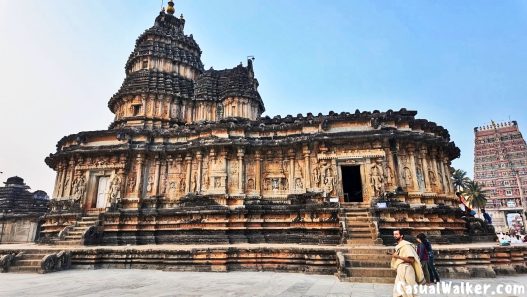

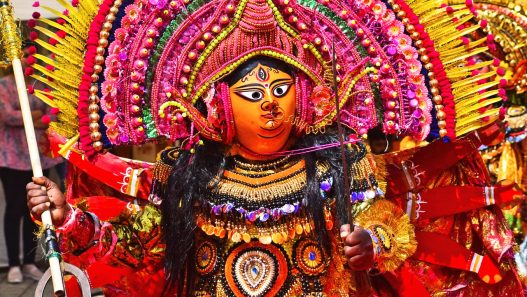

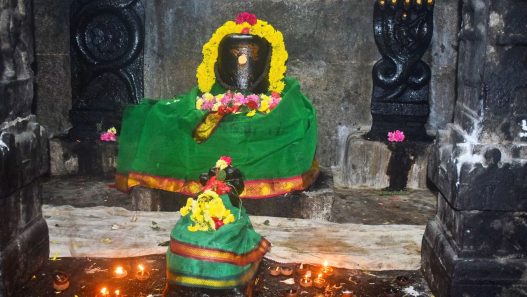
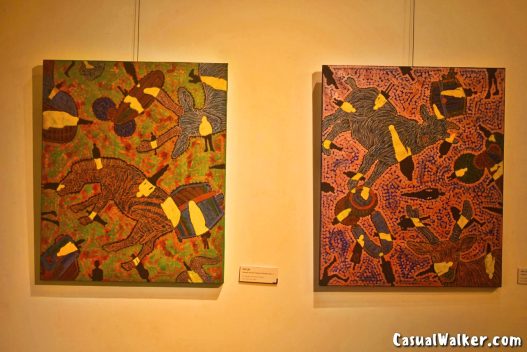

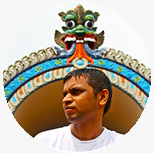

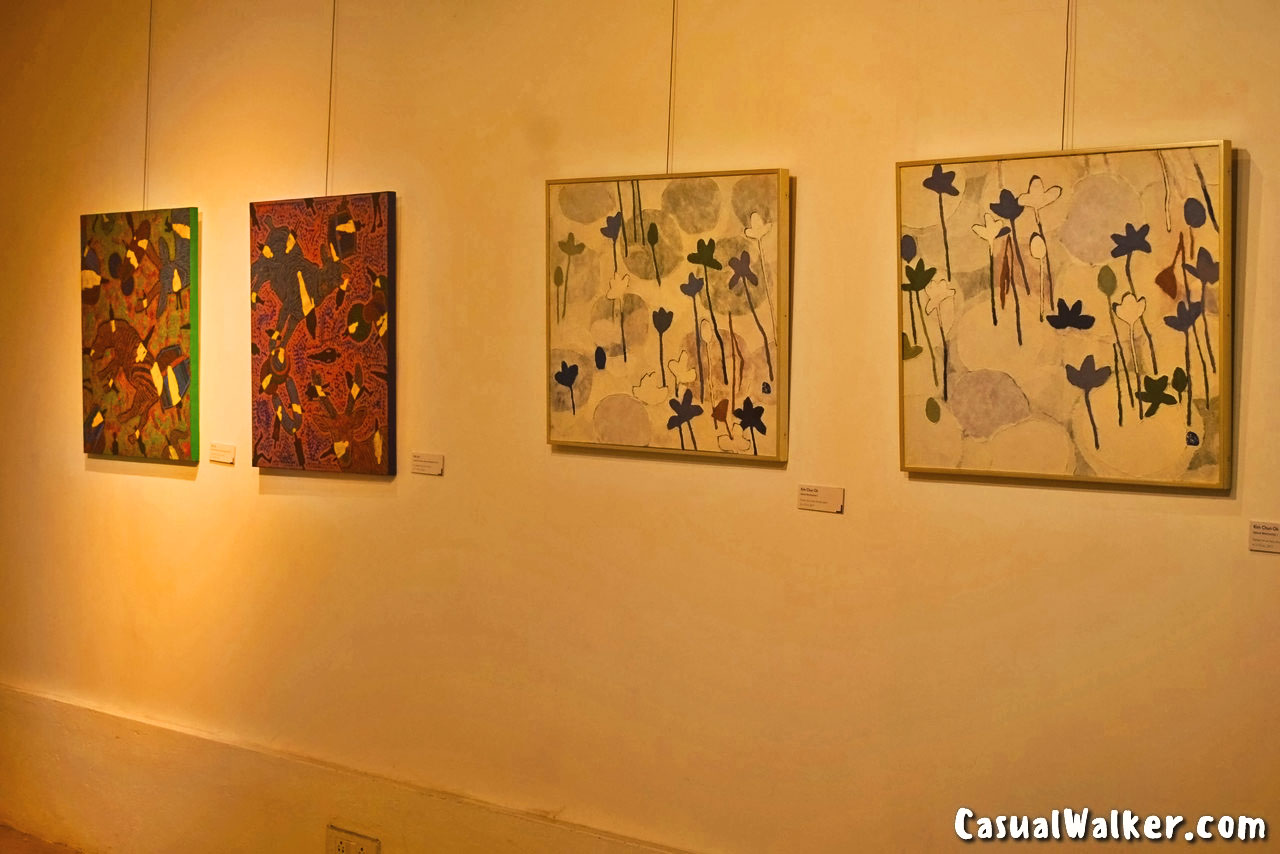





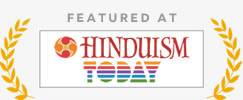
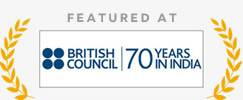






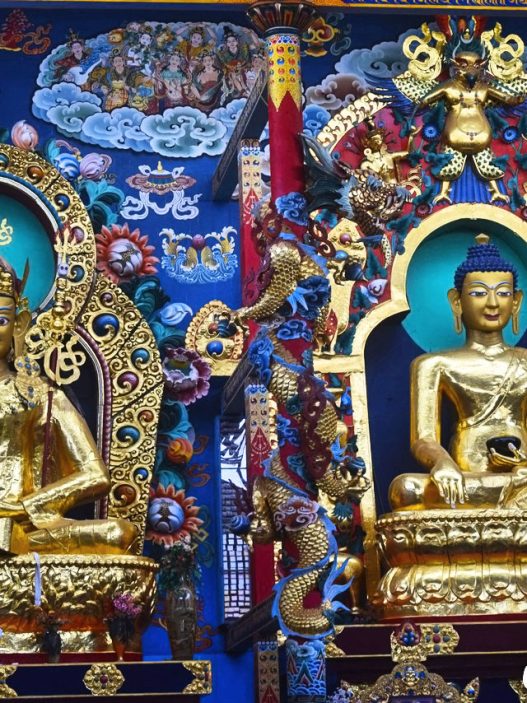
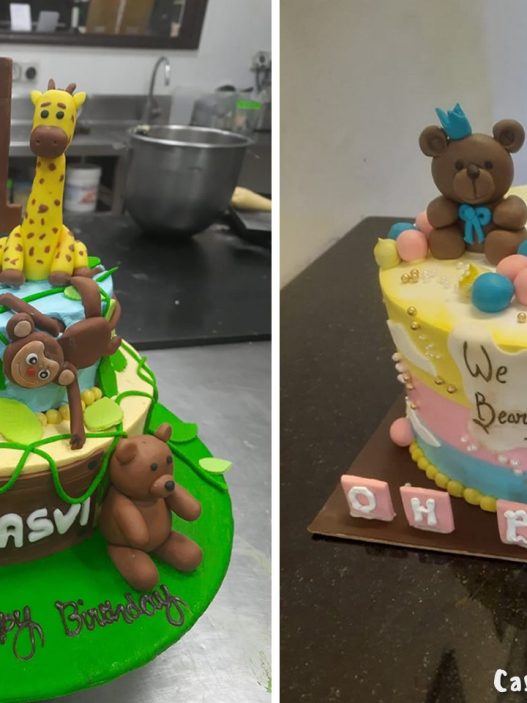


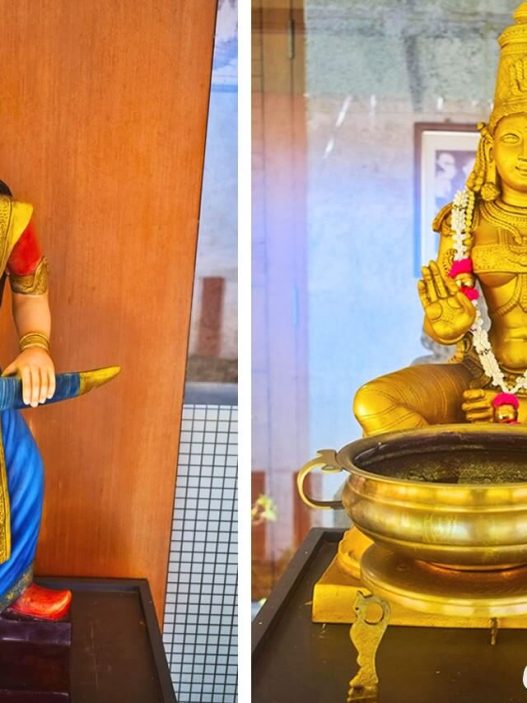
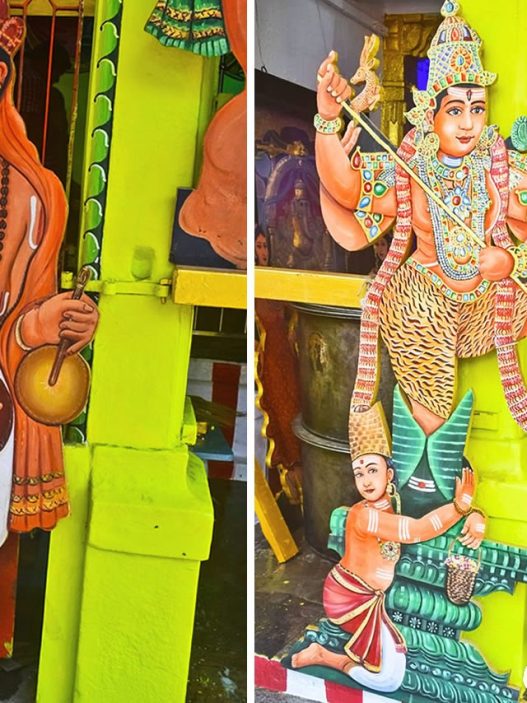
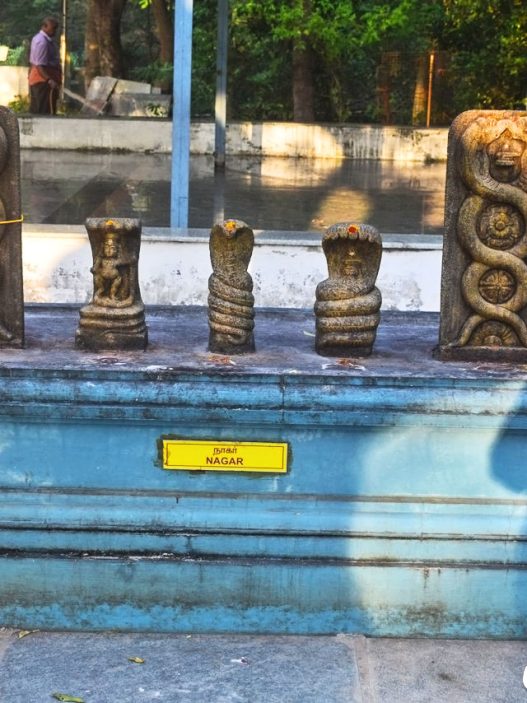
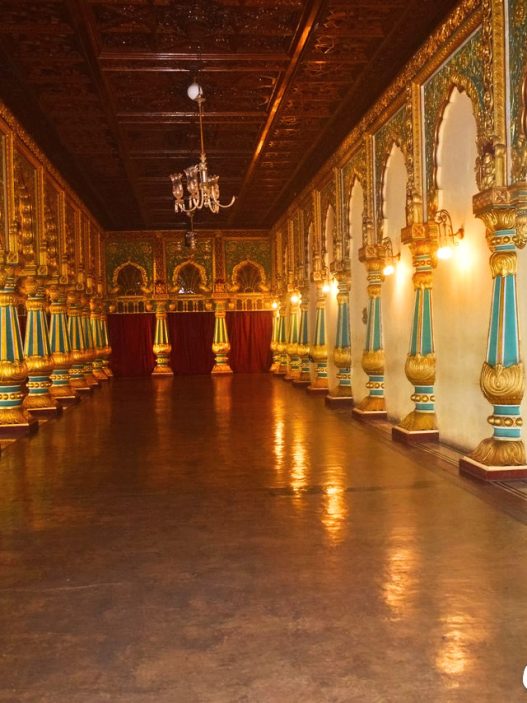
Great ?V I should definitely pronounce, impressed with your site. I had no trouble navigating through all the tabs and related info ended up being truly simple to do to access. I recently found what I hoped for before you know it at all. Reasonably unusual. Is likely to appreciate it for those who add forums or something, website theme . a tones way for your customer to communicate. Nice task..
you may have an excellent blog here! would you wish to make some invite posts on my blog?
Im not positive where you are getting your information, but good topic. I needs to spend a while finding out much more or figuring out more. Thanks for wonderful info I was looking for this info for my mission.
F*ckin’ tremendous things here. I’m very glad to see your post. Thanks a lot and i’m looking forward to contact you. Will you kindly drop me a mail?
It’s hard to find knowledgeable people on this topic, but you sound like you know what you’re talking about! Thanks
Excellent beat ! I wish to apprentice at the same time as you amend your web site, how could i subscribe for a weblog website? The account aided me a acceptable deal. I had been a little bit familiar of this your broadcast provided vivid clear concept
I truly appreciate your piece of work, Great post.
I’m still learning from you, as I’m trying to achieve my goals. I absolutely enjoy reading everything that is written on your site.Keep the tips coming. I loved it!
https://t.me/s/iGaming_live/4866
I want to express some thanks to this writer for rescuing me from this particular matter. After looking out throughout the the net and finding principles which are not productive, I figured my entire life was done. Being alive devoid of the strategies to the difficulties you’ve resolved as a result of the short article is a critical case, as well as those that could have adversely damaged my entire career if I hadn’t noticed your blog. Your good know-how and kindness in controlling all the pieces was excellent. I don’t know what I would’ve done if I had not discovered such a point like this. I can also now relish my future. Thanks for your time very much for your expert and amazing guide. I will not be reluctant to suggest the sites to any individual who would need support about this situation.
Was browsing around and stumbled upon sunwinlink. Seems like they have a good handle on things. Smooth site, easy to get around, and games are running great. Thumbs up from me! sunwinlink
Absolutely written articles, thankyou for entropy.
Can I simply say what a reduction to search out someone who actually knows what theyre talking about on the internet. You positively know the way to carry a problem to gentle and make it important. More people need to learn this and perceive this facet of the story. I cant imagine youre not more in style because you definitely have the gift.
You really make it seem so easy with your presentation however I find this matter to be really one thing which I believe I’d never understand. It kind of feels too complex and extremely vast for me. I am looking ahead to your next post, I will try to get the hang of it!
https://t.me/s/atom_official_casino
Es kann vorteilhaft sein, regelmäßig kleine Spielsessions einzulegen statt lange am Stück zu spielen. Ein gutes Online-Casino bietet eine breite Palette von Spielen, einschließlich Spielautomaten, Tischspielen und
Live-Casino Spielen. Für Spieler bedeutet dies, dass sie
sich im Klaren darüber sein müssen, wie
viel sie spielen müssen, um ihre Gewinne tatsächlich abheben zu
können.
Ohne eigenes Geld einzuzahlen, bekommt ihr Freispiele meistens für bestimmte Slotspiele ohne Einzahlung oder Anbieter,
typischerweise 10, 20 oder 50 Freispiele. Freispiele ohne Einzahlung sind ein Bonus, bei dem ihr eine bestimmte Anzahl an kostenlosen Spins
auf Online-Slots erhaltet. Einen ohne Einzahlungsbonus und dazu noch
ein Bonus ohne Umsatzbedingungen, das werdet ihr sehr selten sehen. Manchmal beinhaltet der
erste Teil des Pakets einen Einzahlungsbonus, während der zweite Teil kostenlose Boni enthält.
Der Bonus kann nur einmal pro Installation der App erhalten werden.
Der übliche Höchstgewinn liegt zwischen 25
und 50 €, wie viel du genau bekommst, hängt
aber davon ab, wie viel du während der Freispiele gewinnst.
Die Experten von Automatenspielex empfehlen diese Alternativen zu 50 Free
Spins ohne Einzahlung, um Spielern noch mehr Chancen auf kostenlose Gewinne zu bieten. Wie gut ein Bonus ist, hängt
nicht nur von der Höhe der Freispiele ab, sondern auch von anderen Faktoren. Auch wenn 50 Freispiele,
die sofort erhältlich sind, verlockend klingen, solltest du bei
der Auswahl genau hinschauen.
References:
https://online-spielhallen.de/lex-casino-erfahrungen-ein-umfassender-uberblick-fur-spieler/
Dead indited articles, thank you for information. “Life is God’s novel. Let him write it.” by Isaac Bashevis Singer.
very nice publish, i certainly love this web site, carry on it
When the ancient Greeks adopted the alphabet, they had no use for a letter representing a glottal stop—so
they adapted the sign to represent the vowel /a/, calling the letter
by the similar name alpha. The earliest known ancestor of
A is aleph—the first letter of the Phoenician alphabet—where
it represented a glottal stop [ʔ], as Phoenician only used consonantal letters.
A, or a, is the first letter and the first vowel letter of the Latin alphabet, used
in the modern English alphabet, and others worldwide. Before a
consonant sound represented by a vowel letter a is usual
In the Phoenician alphabet the letter stood for
a species of breathing, as vowels were not represented in the Semitic alphabets.
Also, A is typically used as one of the letters to label an angle
in a triangle. It can sound like æ, in the International Phonetic Alphabet, such as the
word pad. The Greek alphabet was used by the Etruscans
in northern Italy, and the Romans later modified the Etruscan alphabet for their own language.
The Greeks later modified this letter and used it as their letter alpha.
The small letter, a, is used as a lowercase vowel. An exception is Saanich, in which ⟨a⟩—and the glyph ⟨Á⟩—stands for a
close-mid front unrounded vowel /e/.
⟨a⟩ is the third-most-commonly used letter in English
after ⟨e⟩ and ⟨t⟩, as well as in French; it is the second
most common in Spanish, and the most common in Portuguese. However,
⟨a⟩ occurs in many common digraphs, all with their own sound or sounds, particularly ⟨ai⟩, ⟨au⟩, ⟨aw⟩, ⟨ay⟩, ⟨ea⟩ and ⟨oa⟩.
There are some other cases aside from italic type where script a ⟨ɑ⟩, also called Latin alpha, is used in contrast with Latin ⟨a⟩, such
as in the International Phonetic Alphabet. The Roman form ⟨a⟩ is found
in most printed material, and consists of a small
loop with an arc over it. In the hands of medieval Irish and English writers, this form gradually developed from a 5th-century form resembling the
Greek letter tau ⟨τ⟩.
References:
https://blackcoin.co/tattersalls-hotel-casino/
When determining the weight of your item, make sure to package it first before weighing it.
This mistake can be made on any eCommerce platform, from sites like eBay to FB marketplace, and everything in between. Your earnings, minus selling fees, are deposited directly into your bank account.
Facebook then provides the buyer with the tracking
number and an update on the estimated arrival of their item.
You may create prepaid shipping labels directly within Facebook Marketplace.
You can choose from various shipping methods to reach customers
efficiently. Understanding these features can significantly enhance your business operations and customer satisfaction, ultimately driving more sales.
This integration makes it simpler to share your listings on other platforms, such as
Instagram or LinkedIn, attracting even more potential
buyers.
Whether you are a low stakes player or a high roller, you’ll find the table
that’s just right for you at this casino. Players who have signed up for the Absolute Rewards program can experience Traditional and Baida
Mahjong on select days at the dedicated Mahjong room
located on the second level. The opportunities
for gaming are endless and the choice remains with you.
References:
https://blackcoin.co/casino-hotels-on-the-gold-coast/
Hey, you used to write excellent, but the last several posts have been kinda boringK I miss your super writings. Past few posts are just a bit out of track! come on!
Its like you read my mind! You seem to grasp a lot approximately this, such as you wrote the e book in it or something. I believe that you simply can do with some p.c. to force the message home a little bit, but other than that, that is magnificent blog. An excellent read. I will certainly be back.
I truly enjoy looking at on this website , it contains superb blog posts. “Violence commands both literature and life, and violence is always crude and distorted.” by Ellen Glasgow.
australian online casinos that accept paypal
References:
https://jobsharmony.com/companies/best-real-money-online-pokies-in-australia-for-december-2025/
paypal casinos for usa players
References:
medifore.co.jp
Sun88bet! Shine some luck my way! Looking for a new bookie – you’re up for consideration! Give me some free bets, will ya? 😉 sun88bet
Hi, just required you to know I he added your site to my Google bookmarks due to your layout. But seriously, I believe your internet site has 1 in the freshest theme I??ve came across. It extremely helps make reading your blog significantly easier.
Hmm it appears like your blog ate my first comment (it was super long) so I guess I’ll just sum it up what I had written and say, I’m thoroughly enjoying your blog. I too am an aspiring blog blogger but I’m still new to the whole thing. Do you have any tips and hints for novice blog writers? I’d certainly appreciate it.